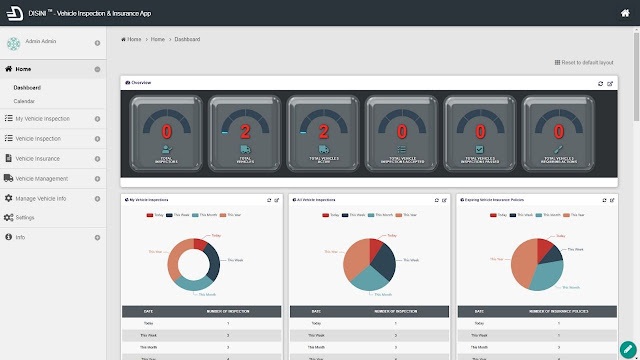Introducing Joget DX, the Next Generation Open Source Digital Transformation Platform
Joget DX is a next generation open source application platform for faster, simpler digital transformation (DX). With Joget DX business and technical teams can collaborate to rapidly build full-fledged enterprise applications visually, anywhere, anytime.
Some history: The Joget platform started as the open source Joget Workflow project on SourceForge in 2009. Initially a workflow engine for business process automation, Joget evolved into a full-fledged application development platform in its third major release Joget Workflow v3 in 2011, back before the term “low code” was even coined by Forrester in 2014. With almost 200,000 open source downloads and more than 10,000 community members since inception, the latest major release Joget Workflow v6 was introduced in 2018 with focus on modern User Experience (UX), and App Maintainability and Performance.
Joget DX is the next generation successor to Joget Workflow. From Workflow to Digital Transformation (DX), the product name change reflects the complete digital transformation capabilities offered by the platform.
Joget DX is targeted for release in 2019, the 10th anniversary of the Joget open source project.
Why Joget DX?
Joget DX combines the best of business process management (BPM), workflow, and low-code/no-code rapid application development in an open source platform.- Web-based visual approach empowers non-coders to build and maintain apps anytime, anywhere
- Reduces time to market, from months to weeks or days
- Apps built are mobile ready, cloud ready
- APIs for integration and plugin architecture for extensibility
- "App Store" for enterprise apps - Joget Marketplace
- Integrated app performance management to detect and optimize performance issues
The trend towards low-code and no-code open source platforms is disrupting the enterprise app development space. As the world becomes increasingly digital, software is more important than ever to enterprises as part of their digital transformation strategy. According to Gartner, “by 2020, at least 50% of all new business applications will be created with high-productivity toolsets.”
No-code / low-code is not the future, it is the present, as is evident in the plethora of available options and increasing adoption today. Joget’s key principles are focused on being simpler, more flexible and more open than other platforms. With Joget DX, several key focus areas in the latest technologies such as Progressive Web Apps (PWA), artificial intelligence (AI), DevOps, and application performance management (APM) brings the platform to the next level.
With more than 1,800 installations worldwide across various industries (including finance, manufacturing, IT, and more), Joget is a proven platform for a wide spectrum of users ranging from Fortune 500 companies to government agencies and small businesses. Some very prominent customers include US Department of Defence, Ministère des Finances et des Comptes Publics France, Société Générale, Cisco, BP, Fuji Xerox, Siemens and many more.

No-code / low-code is not the future, it is the present, as is evident in the plethora of available options and increasing adoption today. Joget’s key principles are focused on being simpler, more flexible and more open than other platforms. With Joget DX, several key focus areas in the latest technologies such as Progressive Web Apps (PWA), artificial intelligence (AI), DevOps, and application performance management (APM) brings the platform to the next level.
With more than 1,800 installations worldwide across various industries (including finance, manufacturing, IT, and more), Joget is a proven platform for a wide spectrum of users ranging from Fortune 500 companies to government agencies and small businesses. Some very prominent customers include US Department of Defence, Ministère des Finances et des Comptes Publics France, Société Générale, Cisco, BP, Fuji Xerox, Siemens and many more.
What’s New in Joget DX?
Users of the Joget Workflow platform will recognize its capabilities to visually build forms, lists, user interfaces (UI) and workflow processes in a drag-and-drop manner anytime, anywhere. Yes, even on a mobile phone or iPad. The video below demonstrates how a Meeting Room booking application is built on Joget Workflow v6 without any coding in less than 30 minutes.In the new Joget DX platform, these same core capabilities are still present but application development is taken to another level with these additional key focus areas:
- User Experience (UX) and Progressive Web Apps (PWA)
- DevOps and Application Performance Management (APM)
- Artificial Intelligence (AI) and Smart Decisions
Joget DX, however, makes it simple with the default new Progressive theme inspired by Material Design, a design system from Google that promotes good design and UX. Every app built by default provides a beautiful Material design user experience as in the screenshots below:
Progressive Web Apps (PWA) are the future of the web and mobile. PWA provides features traditionally available only to native mobile apps such as offline support, push notifications, and device hardware access. In a move showing that mainstream adoption has begun in 2018, Twitter announced that it has started offering its PWA app as its main site.
In order to qualify as a PWA, Google provides a Progressive Web App checklist. The checklist details the required criteria, and there is quite a significant amount of effort to pass the audit. In Joget DX, all apps built will be automatically PWA baseline compliant.
DevOps and Application Performance Management (APM)
When working on large apps and systems in an enterprise environment, teams rapidly encounter many recurring challenges e.g. having multiple teams working concurrently hence difficulty in keeping track of changes and merging work over time. There are also problems when moving and deploying apps between environments (development, staging or production) and challenges in monitoring, identifying and solving performance issues in production.
Recognizing the need to further alleviate these challenges, Joget DX offers several DevOps focused features, the most prominent of which are embedded Git integration and built-in Application Performance Management (APM).
Git is the most popular free and open source version control system today. Joget DX provides automatic integration with Git behind the scenes. All app definitions and components are stored in the filesystem and version controlled using Git, so apps can be collaboratively built by multiple users or teams. Deployments can be automated or performed manually using standard Git commands, and also integrated with continuous integration and continuous delivery (CI/CD) pipelines.
Application Performance Management (APM) is an important part of the DevOps lifecycle to monitor the user experience while improving the stability and availability of applications. The integrated APM in Joget DX provides runtime monitoring and performance management, allowing for app optimization and proactive prevention of downtime.
Artificial Intelligence (AI) and Smart Decisions
Decision making is one of the most important aspects in any business. As a part of process automation, Joget DX provides support for Decisions plugins that can be mapped to process routes for decision making.
Several Decisions plugin implementations are bundled, including a no-code Simple Rules Engine and a no-code artificial intelligence (AI) plugin for TensorFlow.
TensorFlow is the leading open source AI library for machine learning in the world today. Built by Google, TensorFlow is used in a variety of AI applications, notably in areas such as speech and image recognition.
The Joget platform has demonstrated AI capabilities before with a TensorFlow plugin tutorial, but with Joget DX the TensorFlow integration goes deeper. The bundled TensorFlow AI Decisions plugin provides built-in no-code support to execute pre-trained TensorFlow AI models.
Getting Started on Joget
A Joget DX Technical Preview release is targeted for selected partners and users in early 2019, with a beta targeted for Q2 2019.In the meantime, Joget Workflow v6 is available with the same core app development capabilities. Rest assured, there will be a seamless upgrade path from Joget Workflow to Joget DX. To get started on the digital transformation journey with Joget:
- Download Joget Workflow or Sign Up for Joget Cloud
- Learn more in the Knowledge Base
- Join the community in the Community Q&A
- Enquire about the Joget Workflow Enterprise Edition


Looking forward for the improvement. Good job guys!
ReplyDeleteLook forward for Roland improvement
ReplyDeleteCan't wait to see
ReplyDelete